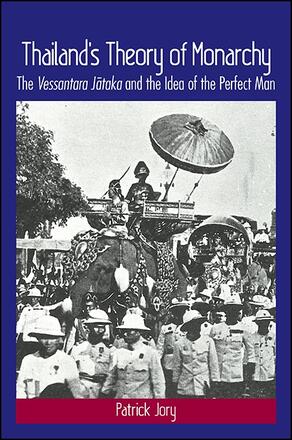
Thailand's Theory of Monarchy
The Vessantara Jātaka and the Idea of the Perfect Man
Alternative formats available from:
Discusses the origins and cultural history of the Theravada Buddhist ideals behind the Thai institution of monarchy.
Description
2016 CHOICE Outstanding Academic Title
Since the 2006 coup d'état, Thailand has been riven by two opposing political visions: one which aspires to a modern democracy and the rule of law, and another which holds to the traditional conception of a kingdom ruled by an exemplary Buddhist monarch. Thailand has one of the world's largest populations of observant Buddhists and one of its last politically active monarchies. This book examines the Theravada Buddhist foundations of Thailand's longstanding institution of monarchy. Patrick Jory states that the storehouse of monarchical ideology is to be found in the popular literary genre known as the Jātakas, tales of the Buddha's past lives. The best-known of these, the Vessantara Jātaka, disseminated an ideal of an infinitely generous prince as a bodhisatta or future Buddha—an ideal which remains influential in Thailand today. Using primary and secondary source materials largely unknown in Western scholarship, Jory traces the history of the Vessantara Jātaka and its political-cultural importance from the ancient to the modern period. Although pressures from European colonial powers and Buddhist reformers led eventually to a revised political conception of the monarchy, the older Buddhist ideal of kingship has yet endured.
Patrick Jory is Senior Lecturer in Southeast Asian History at the University of Queensland and the editor of Ghosts of the Past in Southern Thailand: Essays on the History and Historiography of Patani.
Reviews
"…the central contribution of Jory's innovative study [is] in providing invaluable historical context to the intensified absolutist royalism that has now become the official discourse of the country's national bureaucracy and authoritarian military regime." — Sojourn
"Essential." — CHOICE